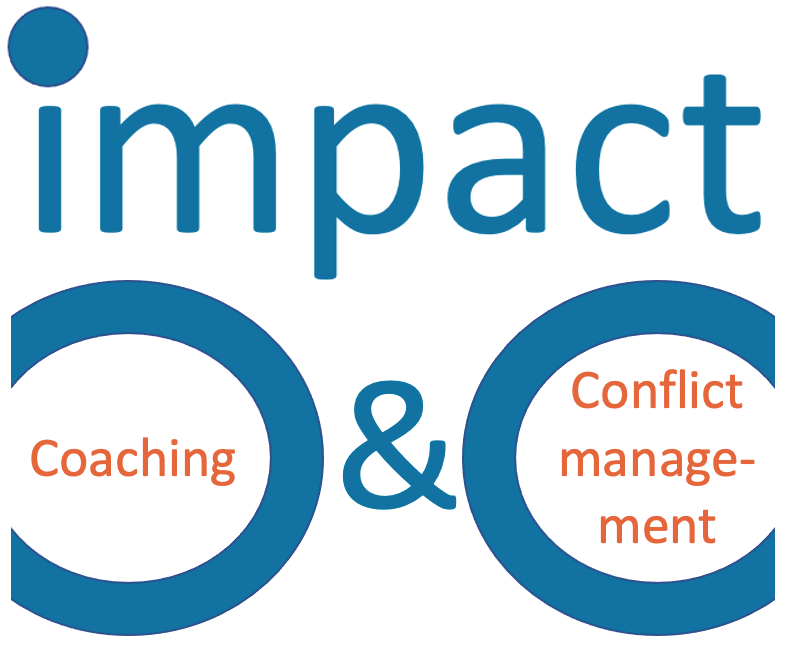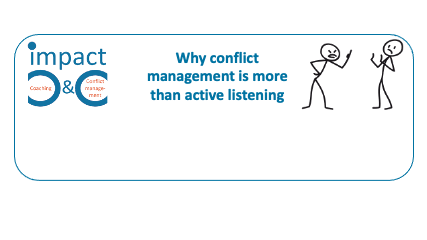Conflict skills training for leaders is in vogue. The aim in most cases is to
👂 listen to the other side and
👂 express that what you have to say in a constructive manner
👂 look for solutions and in overall
👂 acquire a positive attitude towards conflicts.
If you look at workshops addressing employees you will find the same topics and objectives.
To some extent what leaders should be able to do in conflicts or what team members (or more generally employees) should be able to do is identical.
Leaders AND employees need to be able to learn a constructive way of talking about conflicting issues, develop the proper conduct in dealing with conflictual situations, practice active listening, ask open questions, treating one another with integrity and respect to name a few.
But do trainings focusing on communication in conflicts suffice for the leadership role? We think not. Leaders need more. A leaders’ role in conflicts goes beyond that.
On top of behavioural- and interaction- skills for situations of arguments and confrontations, leaders need to lead in conflicts.
Leaders, for instance, need to
✅ know how to spot conflicts early
✅ know how to reliably facilitate situations that escalate
✅ know how to proceed to set up a conflict resolution process
✅ develop a range of responses and actions suitable to different conflict constellations and conflict issues
✅ work “on” the (conflict-) system as well as “within” the system
As such, leadership conflict skills are MANAGEMENT skills.

